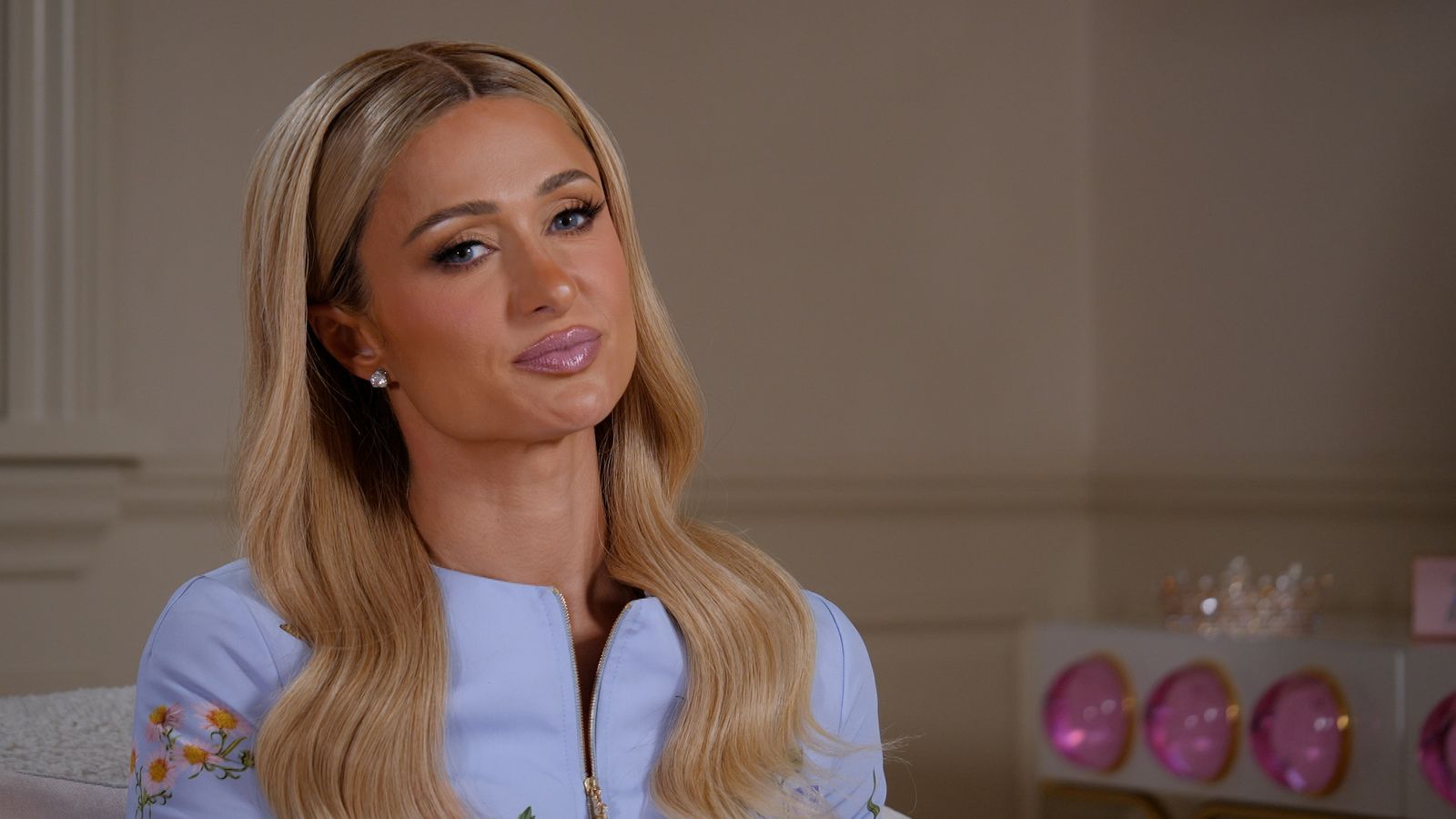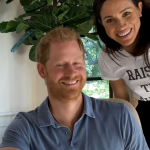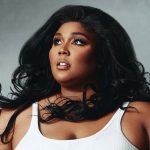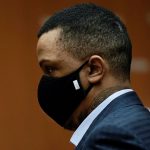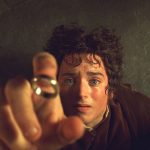Paris Hilton’s mansion is in a gated community in Beverly Park, one of Los Angeles’s most upmarket enclaves where Adele and Mark Wahlberg also live.
On the driveway is a pink Bentley and a blue Porsche. The grand entrance is flanked by a giant white model giraffe and a neon pink Chanel sign and the hallways are lined with framed prints of the woman herself.
We are led to a room upstairs with a full-sized bar and fluffy white chairs where even the cushions have prints of Hilton’s face.
It is a home befitting the original “It Girl” – a reality TV star who once traded off her ditzy persona.
But this is a grown-up Hilton and we’re here to discuss serious issues, specifically the two years she spent at boarding schools for so-called troubled teens.
“It was like something out of a horror film,” she says. “It’s like they enjoyed abusing children.”
In the early 2000s, Hilton was one of the most photographed women in the world, the leader of a party set that included Britney Spears, Kim Kardashian and Lindsay Lohan.
But behind the celebrity, there was a darker reality.
As a 16-year-old she was sent to a series of residential facilities for so-called troubled teens, children with all manner of issues, from bad behaviour to addiction problems and mental illness.
“I wasn’t a bad kid,” she says.
“I was just a normal 16-year-old girl. My parents were very strict. They didn’t want me going out and I rebelled and started sneaking out and getting bad grades.
“My parents spoke to a therapist who recommended these schools. I later found out that this therapist and many others receive commissions sending children to these places.”
Like many children who attend these schools, Hilton’s parents paid for secure transportation, in effect an authorised kidnapping, where strangers take teenagers from their beds in the middle of the night and bundle them into the back of waiting vans.
“At 4.30 in the morning, two large men came into my room and just shook me out of bed and said, ‘Do you want to go the easy way or the hard way?’.
“They were holding up handcuffs and I had no idea what was happening, I thought I was being kidnapped, I had no idea who these people were.
“It just blows my mind that there are people like this that exist in the world that could treat children like this and get away with it for so long.
“I still have severe nightmares about it.”
Read more:
‘Snatched from their beds by strangers’: Inside the multibillion-dollar ‘troubled teen’ industry
Hilton ended up at Provo Canyon School, in the foothills of Utah’s Wasatch Mountains.
It is marketed as an “intensive, psychiatric youth residential treatment centre,” but she says every day there was a living hell.
Please use Chrome browser for a more accessible video player
In her newly released autobiography, Paris: The Memoir, she alleges she was woken in the middle of the night by male staff – not doctors – and led to a private room, where they forced her to submit to cervical exams.
“To be treated like a criminal when you’re just a kid,” she says, “and the strip searches constantly”.
“As an adult now, I see that as sexual abuse. Male and female staff watching a young girl changing or naked or taking a shower, it was just dehumanising on all levels.”
She also claims to have been force-fed medication.
“One time I was like, ‘I don’t want to take these anymore’. So I just kind of had the pills under my tongue and put them in a Kleenex.
“Later on someone found out and I got in so much trouble and they sent me to what they call ‘obs’, where you’re just locked in this tiny cell with blood stains on the wall.
“They put the air conditioning as cold as possible, take away all your clothes and they leave you there for hours and hours.”
Read more:
Paris Hilton opens up about alleged abuse and trauma of infamous sex tape
In response to the allegations, Provo Canyon’s owners say the school was sold in 2000 and they cannot comment on the operations or student experience prior to that time. But that they do not condone or promote any form of abuse.
Hilton, now, 42 and the mother to a two-month-old son, Phoenix, says her perspective has hardened on the troubled teen industry.
Please use Chrome browser for a more accessible video player
“I’m just so in love with my little baby boy,” she says.
“I want to do everything to protect him and I know by doing this work, I will protect future children.
“I just can’t imagine my little boy being anywhere near these type of people, my heart goes out to all the children who are locked up in there now.”
She thinks her own parents were victims of deceptive marketing by the troubled teen industry.
Hilton has become a figurehead for a movement that campaigns to shut down troubled teen schools across America.
She’s helped introduce new laws in Utah, which now put limits on the use of restraints, drugs and isolation rooms in youth treatment programmes. It also requires facilities to document any instance in which physical restraints and seclusion are used.
But she now wants to effect change on a national level.
Be the first to get Breaking News
Install the Sky News app for free
“These people need to be held accountable,” she says.
“They need to have people that have proper licensing, people that don’t have a criminal record. There’s just so much that goes into it. For children to have rights, it should be common sense but unfortunately, in some states, it’s not that way.
“I know by us continuing to fight this fight, that we will succeed and they messed with the wrong girl.”
Listening to her reliving the darkest moments of her life and the determination to bring those responsible to justice, it is hard to dispute that they did indeed mess with the wrong girl.
